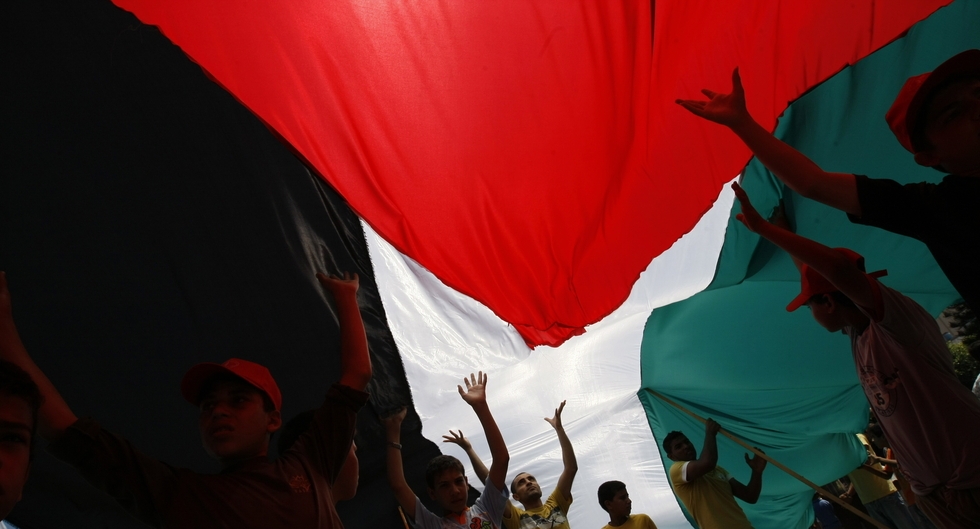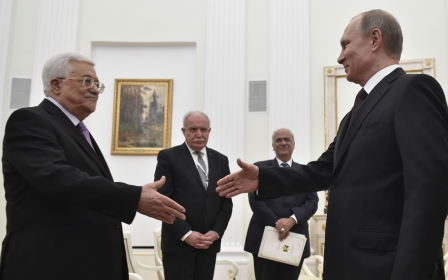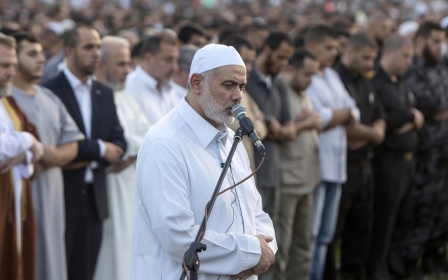Palestinian court suspends polls amid row over Fatah candidates

A Palestinian court has suspended municipal elections set for October after disputes between the rival Fatah and Hamas movements over candidate lists, jeopardising the first vote since 2006 to involve both parties.
The decision was made by the high court in Ramallah, in the West Bank, where Fatah is in power. It was not immediately clear if the decision was definitive or whether the elections could be rescheduled.
Hamas, which runs the Gaza Strip, boycotted the last Palestinian municipal elections in 2012, but was due to participate this year.
Hamas spokesman Sami Abu Zuhri said his group rejected the "political decision".
"We reject the decision to cancel the election and call on everyone to reject it," he said.
Fatah and Hamas have not contested an election since the 2006 parliamentary polls, which Hamas won, sparking a conflict that led to near civil war in Gaza the following year.
This year's vote was planned with 81-year-old President Mahmoud Abbas under heavy political pressure as opinion polls suggest most Palestinians would like him to step down.
There has been no Palestinian presidential election since 2005 and Abbas has remained in office despite the expiry of his term.
The head of the high court, Hisham al-Hatoo, issued Thursday's ruling in response to a challenge by a lawyer, Nael al-Houh.
Houh said his appeal was based on the fact that the elections were not being held in Jerusalem and over concerns related to the election in the Gaza Strip.
The Palestinians see East Jerusalem, occupied by Israel in 1967 and later annexed, as the capital of their future state.
In the Gaza Strip, a court run by Hamas cancelled lists of Fatah candidates in a number of municipalities for "violating the election law", according to a judicial source and a spokesman for Fatah.
The judicial source said five lists in the Khan Younis area were cancelled for "violating the law and not meeting the necessary conditions".
Despite repeated reconciliation attempts, Hamas and Fatah have failed to bridge their differences and form a unified administration for the Palestinian territories.
The October vote was to choose municipal councils in some 416 cities and towns in the occupied West Bank and the Gaza Strip.
It was being seen by some analysts as an indicator as to whether Hamas and Fatah could take a significant step towards reconciliation. Their divisions are among the key obstacles in efforts to restart Israeli-Palestinian peace efforts, at a standstill for more than two years.
The Palestinian parliament has not met since 2007, the year Hamas, buoyed by its 2006 election victory, seized the Gaza Strip by force, driving out Fatah.
Hamas caused a shock by winning the majority of seats in the 2006 polls, which were seen by some as the most transparent ever to be held in the Palestinian territories.
But the international community refused to accept a Hamas government, demanding that the Islamist group first renounce violence, recognise the state of Israel and respect agreements signed between Palestinian and Israeli leaders.
The European Union and the United States have blacklisted Hamas as a terrorist organisation.
Israeli security analysts have expressed fear that the Islamist group could eventually come to power in the West Bank.
New MEE newsletter: Jerusalem Dispatch
Sign up to get the latest insights and analysis on Israel-Palestine, alongside Turkey Unpacked and other MEE newsletters
Middle East Eye delivers independent and unrivalled coverage and analysis of the Middle East, North Africa and beyond. To learn more about republishing this content and the associated fees, please fill out this form. More about MEE can be found here.




